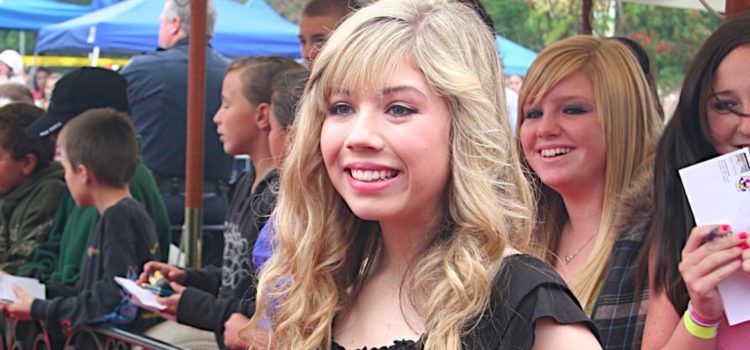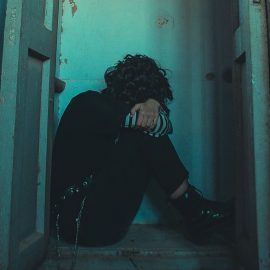

This article is an excerpt from the Shortform book guide to "I'm Glad My Mom Died" by Jennette McCurdy. Shortform has the world's best summaries and analyses of books you should be reading.
Like this article? Sign up for a free trial here.
What was Jennette McCurdy’s childhood like before fame? How did McCurdy deal with her mother’s mental and physical illnesses?
Before she was Sam Puckett on iCarly, Jennette McCurdy was just a young girl with a mother who had big dreams—and big problems. In her memoir I’m Glad My Mom Died, McCurdy details how her mother’s childhood dream manifested into her daughter’s life.
Continue reading to learn more about Jennette McCurdy’s childhood chase for fame.
McCurdy’s Troubled Home Life
From Jennette McCurdy’s childhood, she lives with her family in Garden Grove, California, about an hour and a half from Hollywood. She notes that residents call the city “garbage grove” because so many “white trash” people live there. She lives with her mom and dad, her three brothers, and her mom’s parents. The family doesn’t have much money and frequently pays their rent late or underpays it, even with McCurdy’s dad and grandparents all chipping in. Her grandparents work minimum-wage jobs; her dad works two blue-collar jobs. Debra home-schools her four kids.
McCurdy’s home life is marred by Debra’s mental and physical illnesses, including Debra’s hoarding, her volatile mental and emotional state, and her cancer. These issues cause McCurdy to feel constantly anxious, guilty, and responsible for her mom’s health and happiness. However, she loves her mom deeply and, as a child, she’s unaware of how much her uncomfortable feelings are a reaction to Debra’s behavior.
Debra’s Hoarding
Debra is a hoarder, and their house is so filled with junk that there’s no room for the four children to sleep in their bedrooms; they sleep on mats on the living room floor. They also use a fold-out mat on the floor as a dining room table.
The garage is so full of junk that it’s impossible to walk through, and it’s full of dead rats and possums, which smell bad. The family keeps an extra refrigerator at the front of the garage near the garage door so it’s more accessible, but the garage door is broken, so every time McCurdy and her brother have to get food out of the refrigerator they put themselves in danger: Her brother strains to keep the heavy garage door open while McCurdy runs to get what they need before the door comes crashing down.
The family is Mormon, and McCurdy loves going to church—not because she’s religious, but because it means she can leave the house. She hates the house and feels anxious just being in it. Church feels like a clean, peaceful escape.
| Causes and Effects of Hoarding Disorder While researchers don’t know what causes hoarding disorder, they do know that it often coexists with other mental health conditions, such as obsessive-compulsive personality disorder (OCPD), obsessive-compulsive disorder (OCD), attention-deficit/hyperactivity disorder (ADHD), and depression. A unique feature of hoarding disorder is that hoarders frequently have no awareness of or insight into their behavior. As a result, they defend their hoarding and resist attempts at intervention. The causes of hoarding may be unknown; the effects, however, are clear. Studies show that hoarding can present a risk of psychological and physical harm to family members, as was the case in the McCurdy family. Like McCurdy, children of hoarders report increased anxiety and family strain. They often feel that they can’t have friends over to the house and they need to keep a shameful secret about their family. In addition, hoarding can collapse appropriate boundaries by forcing family members to share—and perform all their activities in—the only uncluttered spaces in the house. |
Debra’s Volatile Mental and Emotional State
Debra is very emotionally volatile and frequently has angry outbursts over everything from her sons spilling milk to her husband getting home late from work—she often makes him sleep in the car when he gets home late.
Debra’s unpredictability causes McCurdy to be very sensitive to her mom’s emotions; this hyperawareness allows McCurdy to determine what’s about to happen and behave accordingly. She feels responsible for her mom’s happiness. For example, she can tell from Debra’s body language and facial expressions when she’s about to get angry at McCurdy’s dad, so she rushes to Debra’s side and tells her she loves her in an attempt to calm Debra down and prevent another violent outburst.
(Shortform note: While everyone has occasional outbursts, people who are consistently unable to control or manage their emotional responses—in particular, their responses when things go wrong in their lives—are known in psychological terms as emotionally dysregulated. Like Debra, they’re likely to have outsized, negative reactions to small irritants or easily solvable problems. Children aren’t born with the ability to regulate their emotions, so having a parent who struggles to model healthy emotional regulation makes it more likely that a child will also have trouble managing their emotions.)
Debra’s Cancer
Debra was diagnosed with stage four breast cancer when McCurdy was two years old, and she underwent chemotherapy, radiation, a bone marrow transplant, a mastectomy, and a breast implant. Even after the cancer is in remission, Debra’s illness is a constant presence in McCurdy’s childhood: Debra frequently tells her cancer story to anyone who will listen, and every week she makes her kids rewatch a home video she made shortly after her diagnosis. Each time, she tells McCurdy that she can’t understand how she could have been singing “Jingle Bells” at such a somber time—McCurdy was two years old.
As a six-year-old, McCurdy feels incredibly guilty for her behavior as a two-year-old. She also feels uncomfortable about repeatedly having to watch a video of her mom when she was very sick with cancer.
The overall feeling in McCurdy’s house that her mom’s cancer could return at any minute contributes to McCurdy’s desire to please her mom and do anything she can to keep her healthy and happy. McCurdy even believes that she can keep Debra alive by wishing for it every year when she blows out the candles on her birthday cake.
When McCurdy is 18, her mom’s cancer does return. The cancer spreads and Debra gets progressively worse over the next few years.
(Shortform note: Children whose parents have cancer are more likely to experience higher rates of anxiety and distress, as well as other emotional and behavioral problems. These problems can be caused not only by the child’s fear and sadness upon learning of the diagnosis itself, but also by related factors such as disrupted schedules due to medical appointments, financial stress due to medical bills, the physical or psychological unavailability of the sick parent, or a role reversal in which the child takes on the role of actual or emotional caretaker to the sick parent.)

———End of Preview———
Like what you just read? Read the rest of the world's best book summary and analysis of Jennette McCurdy's "I'm Glad My Mom Died" at Shortform.
Here's what you'll find in our full I'm Glad My Mom Died summary:
- Former child star Jennette McCurdy's autobiography
- McCurdy's difficult, often traumatic, relationship with her controlling mother
- What it's like to grow up as a child in the spotlight






